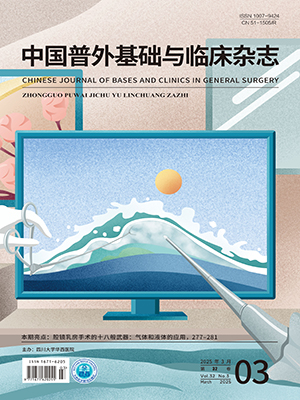Objective To investigate K-ras gene exon 2 codon 12 and 13 mutations, and analyze the clinical significance in the Uyghur and Han patients with rectal cancer.
Methods A total of 144 surgical specimens taken from patients with rectal cancer who were treated in this hospital from January 2010 to December 2011 were used in this study. DNA was picked up from the tumor tissues and amplificated by PCR then direct sequencing.
Results The K-ras gene muta-tion rate was 22.22% (32/144), which was 26.09% (12/46) and 20.41% (20/98) in the Uyghur and Han patients, respec-tively, the difference was not statically significant (P>0.05). The K-ras gene mutation was related to the depth of invasion(T1+T2:25.0%, T3+T4:75.0%, P=0.01), which was not related to the nation, gender, location of tumor, differen-tiation degree, or lymph node metastasis (P>0.05).
Conclusions K-ras gene mutation is a common event in the Uyghur and Han patients with rectal cancer, but the K-ras gene mutation rate is not significant difference between the Uyghur nationality and Han nationality, which is only related to depth of invasion.
Citation: FU Dapeng,GONG Xuchen,KONG Chongqing.. Investigation of K-ras Gene Codon 12 and 13 Mutations in The Uyghur and Han Patients with Rectal Cancer. CHINESE JOURNAL OF BASES AND CLINICS IN GENERAL SURGERY, 2013, 20(2): 165-168. doi: Copy
Copyright © the editorial department of CHINESE JOURNAL OF BASES AND CLINICS IN GENERAL SURGERY of West China Medical Publisher. All rights reserved




